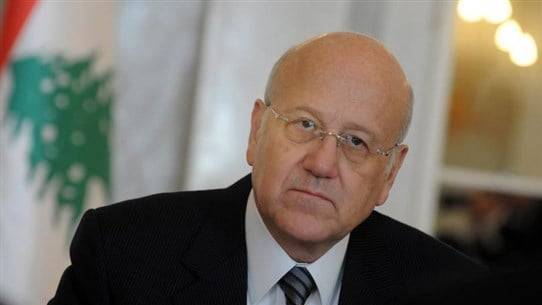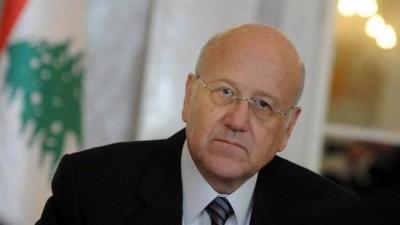Since his return from his visit to Iran, the discussions about the Iranian fuel grant have faded into uncertainty amid the complexities of government operations and the current political crisis. The Lebanese delegation brought back to Beirut a draft agreement that was reached with the Iranian side to present it to the Lebanese government for eventual formal signing between the two parties. However, as of now, the Iranian side has not received a final Lebanese response.
Informed sources about the Iranian atmosphere reveal that the Lebanese delegation that traveled to Iran carried with it an Iranian offer to build electricity plants using the BOT method, along with a third plant as a gift, in addition to supplying Lebanon with 600,000 tons of fuel as requested by the Lebanese side. The sources further state that an agreement was reached between the Lebanese and Iranian sides on the draft agreement, and both parties approved its content, with the delegation departing in hopes of presenting the draft to the relevant parties for their opinion. However, Iran and its ambassador in Lebanon have not received the anticipated response.
According to what has reached the ears of the Iranians, the caretaker Prime Minister Najib Mikati has received verbal approval from the Americans to accept the Iranian grant but is awaiting written confirmation to avoid American sanctions. The same sources believe that the decision lies with the Lebanese side, while Iran is still waiting for a response and is ready to assist once that approval is communicated.
Since its signing, Iran has not issued any position regarding the maritime border demarcation agreement with Israel. However, as per the informed sources, Iran rejects the notion of viewing the agreement as a precursor to normalization or interpreting it in that direction. The sources continue to assert that the "great achievement" is not a Lebanese recognition of Israel or a concession, but an acknowledgment of Lebanon's rights to its oil and gas wealth, mockingly pointing out that there is no oil wealth in that geographical area—"Otherwise, why would the Americans and Israelis rush to conclude this agreement?"
The sources add that "Hezbollah" and its Secretary-General do not support the agreement as an agreement but rather aim for Lebanon to claim its rights. They announce that a supportive stance regarding the agreement will be issued by Tehran soon, aimed at supporting the restoration of rights to their rightful owners, while also reminding that these borders are fundamentally Lebanon's borders with occupied Palestine, not with Israel.
The sources are cautious in approaching Lebanese matters, especially concerning government and presidential files, stating that the Iranian ambassador in Lebanon, Mostafa Amani, is still in the process of gauging the Lebanese atmosphere through meetings with officials. They express surprise at the rising voices calling for the liberation of Lebanese sovereignty from Iranian occupation, questioning what the manifestations of such an occupation are and how it is expressed.
The closely informed sources about the Iranian stance refuse to engage in name games regarding the government or the presidency and simply state that Iran fundamentally rejects Lebanon being used as a launch pad for Israel to execute its plans in the region, especially since Iran seeks to compensate for its internal political crisis by creating tensions abroad. They continue, saying that what concerns the Islamic Republic is the existence of capable governments that can maintain the country and end any existing occupation on its territory. The perspective on the matter here is from a broad strategic viewpoint rather than a narrow local one.
The sources do not deny the interconnectedness of files in the region and the impact of the suspension of Saudi-Iranian talks, from Lebanon to Yemen and Iraq. They confirm that the discussions have stopped, citing poor relations and difficulties in reaching an understanding between the two countries, especially in light of recent events occurring in several areas of Tehran. According to the sources, the Saudi-Iranian relationship has always been governed by misunderstanding between the two countries, which is fed by a series of successive events in the region, not to mention the recent developments in Iran, which fundamentally froze Iranian-Saudi negotiations and escalated tensions to the point of mutual accusations and threats, with the United States also entering the fray.
Iran has insisted on the return of diplomatic exchanges with Saudi Arabia, and each time the topic has been raised, it has been met with the opening of the files on the Houthis in Yemen, "Hezbollah" in Lebanon, and other issues. According to Iran, Saudi Arabia wants to be a mandatory passage for relations with Arab countries and rejects Lebanon's relationship with it. Negotiations with the Americans are no better off; they have stopped but have not returned to square one, as is often said. The main point of contention pertains to the lifting of American sanctions on Iran.
Regarding the ongoing protests in Iran, the sources do not deny the existence of problems but assert they are not at the scale depicted in the media, considering that the imposition of hijab in Iran is related to the symbolism of Iranian society and adherence to laws.




